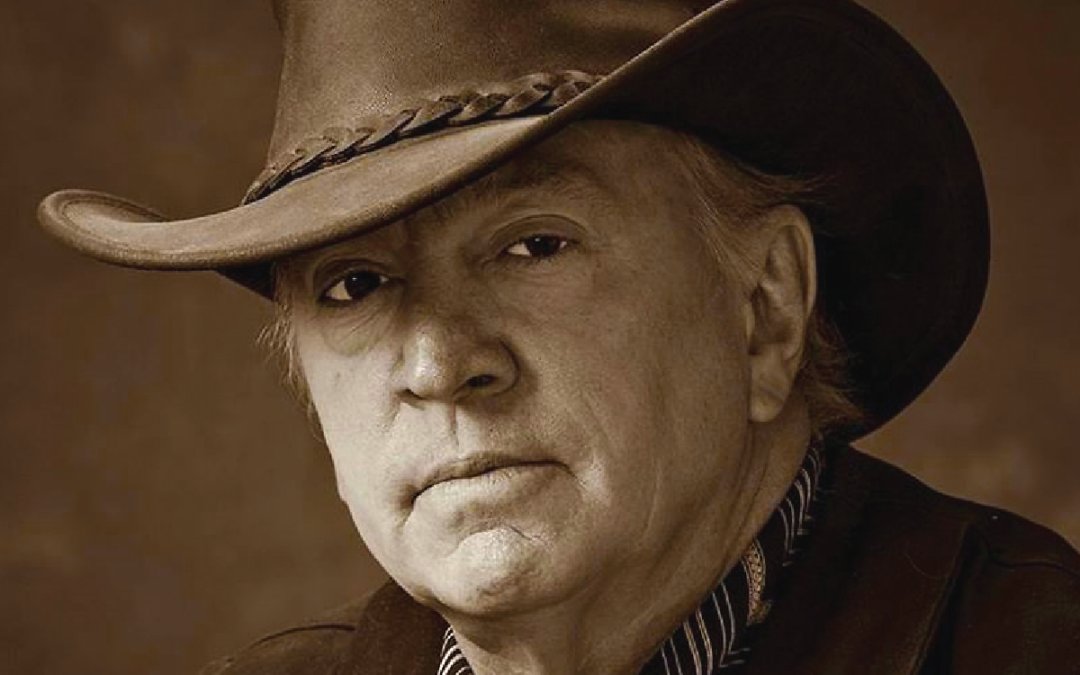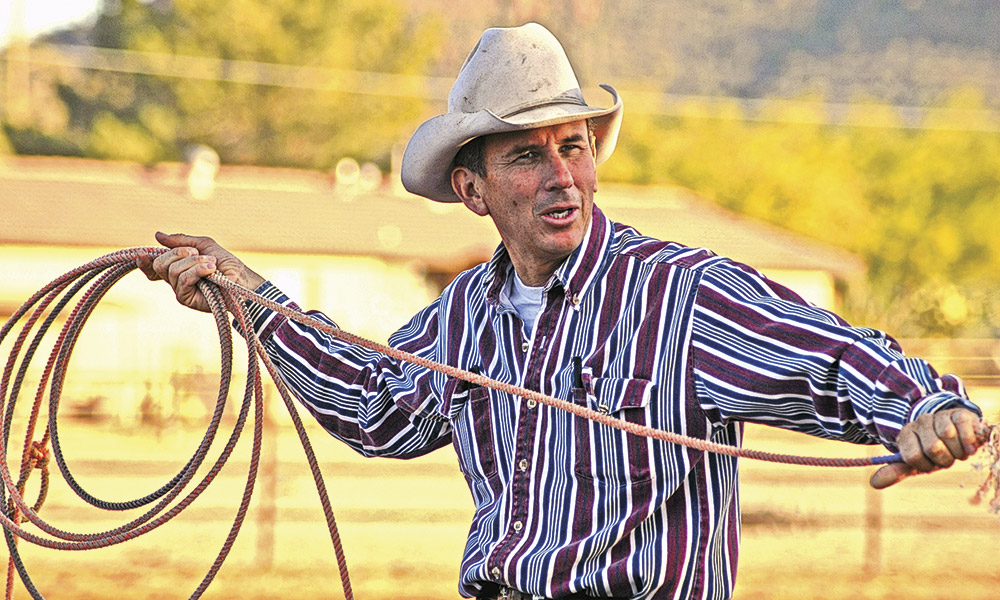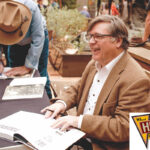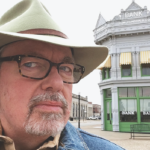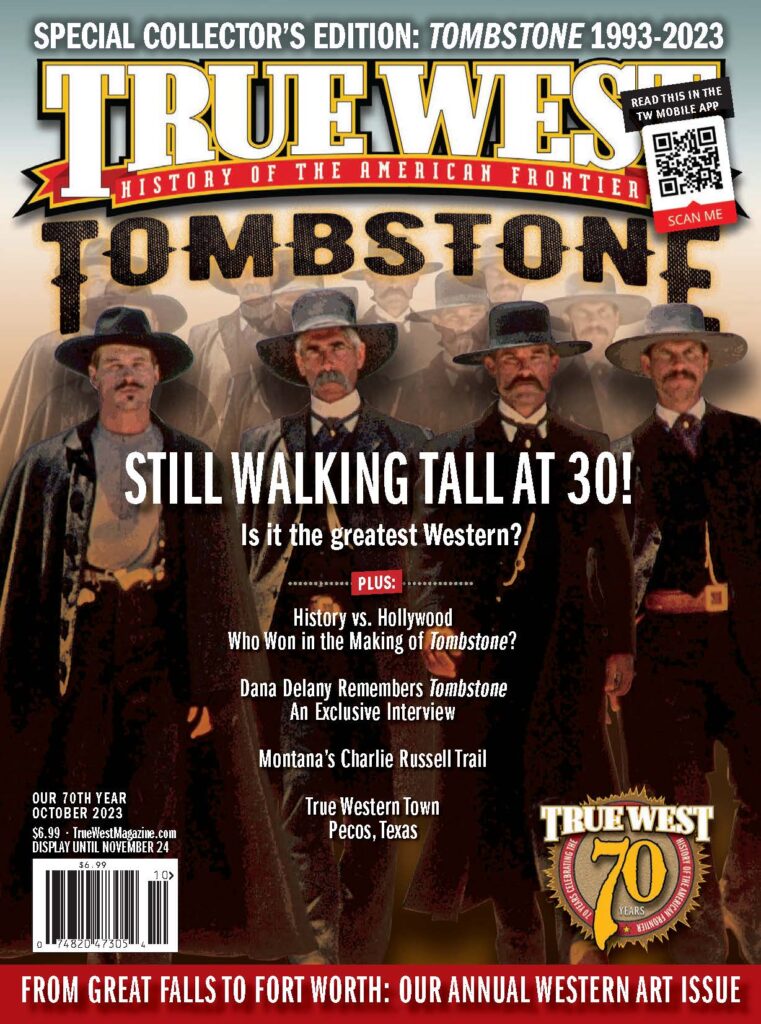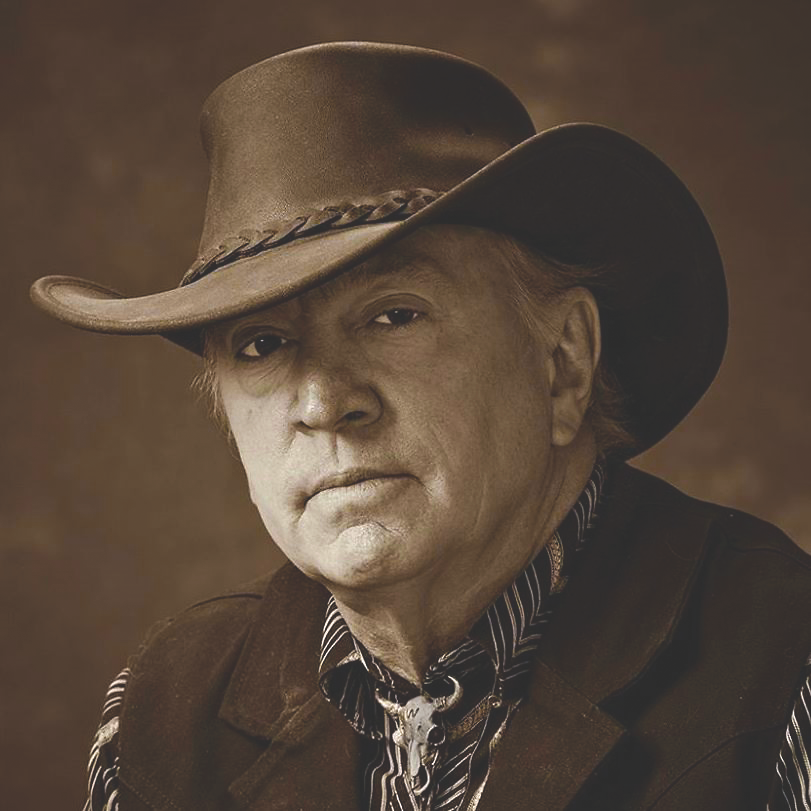
Historian and Educator
Bradley G. Courtney, Prescott, Arizona’s “Whiskey Row Historian,” has written books and articles, and has lectured extensively on the history of that town’s famously infamous stretch of saloons that started forming in 1864. He learned in 2011 that no historian had ever academically researched Whiskey Row, even though it’s a well-known Old West landmark. Bradley’s latest book project is The Prescott/Tombstone Connection. Readers will learn that this connection is much more wide-ranging than just the Earps and Doc. He is married to Wendi Courtney.
I was raised in southwest Michigan on a cattle farm that became a chicken farm. I prefer cattle.
My father, Bobby Courtney, bestowed upon me a love of history. Some of my earliest and fondest memories are of him and me touring the Gettysburg Battlefield together. My mother, Bertha, was Native American. From her I learned to ignore “color” and love people.
Teachers aren’t those who “can’t do, so they teach.” Whenever I hear that, I retort, “Oh, yeah? Try teaching sixth-graders. See what happens!”
Competitive running was how I learned goal-setting and discipline because I aimed to become world-class.
A mentor during my masters in history program, Dr. Alexander Burcke, once challenged me when in one of my historical papers I’d written that a certain general was “skulking about” on a hill. He asked, “How do you know he was skulking?” I didn’t know. That question has guided me during my career as a historian. “How do I know?”
A Western I love is Unforgiven. I probably shouldn’t confess this, but I relate to William Munny. ’Nuff said.
My heroes in history are the Buffalo Soldiers. What they achieved and endured to “prove themselves” was, in my opinion, unmatched in American history. For good measure, add the amazing Bass Reeves into the mix.
Geronimo is the historical character I’m most fascinated by, but I can’t say I like him. Yet, I admire him. I would’ve fought back, too, but probably a bit differently.
Giving trips down the Colorado River was my dream job. I could’ve and would’ve done that forever, but it wasn’t conducive to being a good father.
Teaching came naturally to me, so for 31 years I taught in two middle schools. I still teach, but my “students” are much older (and more receptive).
The Navajo Nation is where I lived and worked for 12 years. I loved it and would’ve stayed longer had circumstances not interfered.
Marriage, for me, has been and is a blessing. If you’ve had the experience of knowing you’re with the right person, there’s nothing quite like it.
A good cigar is an event, not part of a habit. Whether alone or with friends, cigar-smoking requires setting aside time to enjoy the experience.
A piece of me still lives in northern Arizona and on the Navajo Reservation—a wondrous land with wondrous people.
I’ve written a thousand-plus songs. Ironically, my greatest success in that area—even though I had a Nashville agent—came after I moved to remote northern Arizona and wrote about the natural wonders there. I sold over 4,000 albums from singing to boat passengers when I gave Colorado River trips. They were a captive audience.
Prescott is unique because it was established where no community already existed and in a wilderness area unmapped at the time. It was designed to not only be a functioning town, but the capital of Arizona Territory. Today, it’s both a historical and thriving city with a small-town feel.
Being a father, along with being a husband, is the greatest honor of my life.
What history has taught me is that true history (versus false history) has substance. With true history we learn about the realities of humanity, and from there we can do something. When we learn that something we were told was true history is actually false, the experience loses all substance.
History has also taught me that true historians are a rare and unselfish breed, and form a supportive community with one goal in mind: getting it right! I’ve even had some of the best-known people in our field go out of their way to help me, a local historian. Thank you!

